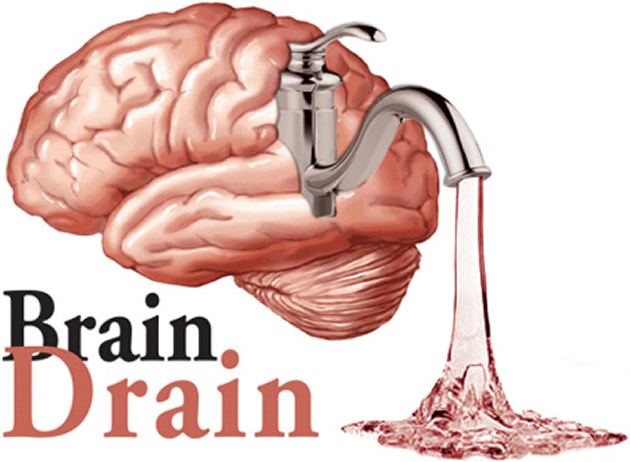EDITORIAL COMMENT: Africa must mark day with pride

 Zimbabwe and other countries in Africa mark the 52nd anniversary of Africa Day today. It is the day when the continent celebrates the founding of the Organisation of African Unity, (OAU), now African Union, on May 25, 1963, in Addis Ababa, Ethiopia. It is the day when we reflect on the liberation struggles, the liberators and civilians who sacrificed their lives in those wars, the goals of liberation and how far the continent has gone in achieving them.
Zimbabwe and other countries in Africa mark the 52nd anniversary of Africa Day today. It is the day when the continent celebrates the founding of the Organisation of African Unity, (OAU), now African Union, on May 25, 1963, in Addis Ababa, Ethiopia. It is the day when we reflect on the liberation struggles, the liberators and civilians who sacrificed their lives in those wars, the goals of liberation and how far the continent has gone in achieving them.
Some activities are lined up for local celebrations today, largely in Harare, with a few sporting and artistic events in other parts of the country. There is an exhibition by women in Harare, an event that is consistent with the theme of the African Union this year, “2015, Year of Women’s Empowerment and Development Towards Africa’s Agenda 2063.” In addition, the University of Zimbabwe hosts a public lecture while there would be a dinner at the Rainbow Towers.
We are pleased to be commemorating this day, as Africa is now largely independent of foreign occupation. That was the primary objective of the OAU, a relevant one at the material time as much of the continent was still under colonial rule. The OAU, working with countries such as Cuba, the Soviet Union and China supported the liberation movements and their peoples in fighting against white rule. Colonialism was defeated.
However, we are concerned that while we are now an independent continent politically, we are still facing the challenge of continuing civil wars, particularly in West Africa, the Great Lakes region and the Arabic north. There is conflict in Burundi, Libya, Somalia, and uneasiness in eastern Democratic Republic of Congo and terrorism wrought by Islamic fundamentalists in east Africa and Nigeria.
We call on the leadership of these countries on both sides of the conflicts, the African Union and well-meaning foreign partners to put a stop to this insecurity, for without security, African development would be a mirage.
Africa still faces the challenge of poverty. We are the continent where the majority of people live on less than a $1 a day, a case study for western students of development studies seeking to understand better what material poverty actually is.
Poverty tends to spawn a number of health problems. There are diseases like Aids, malaria and Ebola that sicken and kill millions of Africans. Aids kills around 1,2 million people every year in Sub-Saharan Africa, malaria kills around 600,000 people yearly in the same region while Ebola had, by May 20, killed more than 11,000 people in West Africa since March last year. The most regrettable point is that these diseases can be treated or controlled but because our health systems lack resources to do so, they remain immense headaches in Africa.
On another score, Africa has not really weaned itself from indirect control by its former colonial masters. This is worst in West Africa where France, with respect to the peoples of that region, still holds sway. Our brothers and sisters in that part of our beloved continent really need a second liberation. There must be that awareness among the leadership and the people that former colonial masters will never want them to prosper in the strictest sense of the word. They always want to perpetuate the objectionable horse-rider relationship with blacks being the horse and the rider being the French.
We point out the negatives not because all is gloom in Africa. Far from that, but because we feel we don’t deserve this suffering.
Cognisant of the economic challenges the continent is facing, African governments are working flat out to develop their economies and integrate them into larger regional economic blocs.
We are encouraged that, as we report elsewhere in this edition, the 52nd anniversary of Africa Day comes as a tripartite free trade area (TFTA) covering 27 countries with a gross domestic product of $1,3 trillion is taking shape and is due for official launch in the next three weeks.
It embraces the Common Market for Eastern and Southern Africa (Comesa), Southern African Development Community (Sadc) and the East African Community (EAC) blocs that have an estimated population of up to 625 million.
“The tripartite FTA has a combined population and gross domestic product of 625 million people and $1,3 trillion respectively that would constitute a single largest market,” said Comesa secretary general, Sindiso Ngwenya.
“The tripartite arrangement is going to become a game changer for Africa in the sense that it comprises 26 countries almost half of the African Union and ultimately 27 countries with South Sudan coming on board.”
The free trade area will cover more than half of the continent and should be another step in integrating the continent economically, and by extension politically and culturally, using regional economic communities as building blocks.
In doing this, the continent is guided by Agenda 2063, a broad, strategic plan to transform the socio-economic status of Africans by 2063.
We are confident that when Africa develops economically through value addition, beneficiation and direct local ownership of factors of production, the challenges we are facing such as poverty, conflict and disease would be overcome.











Comments